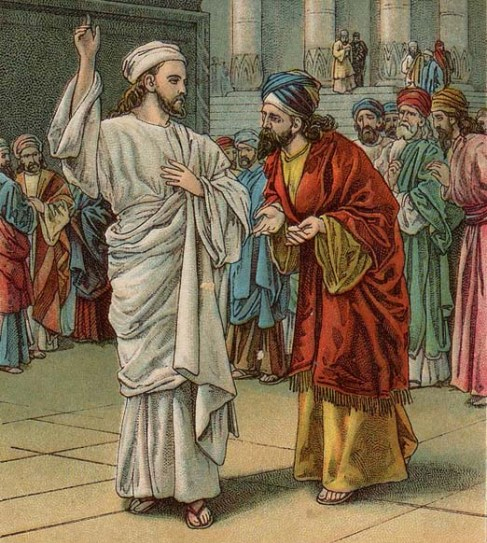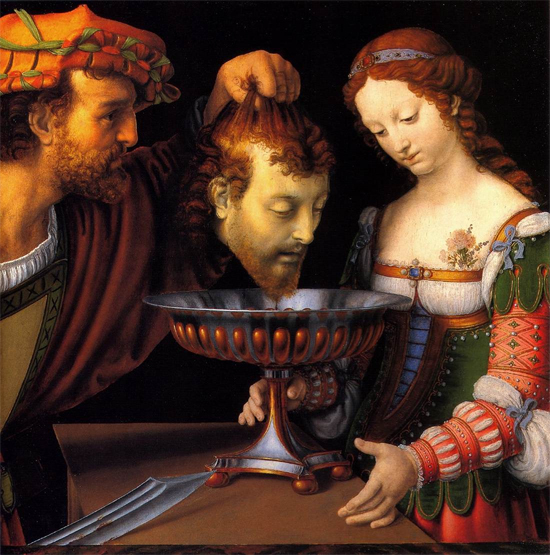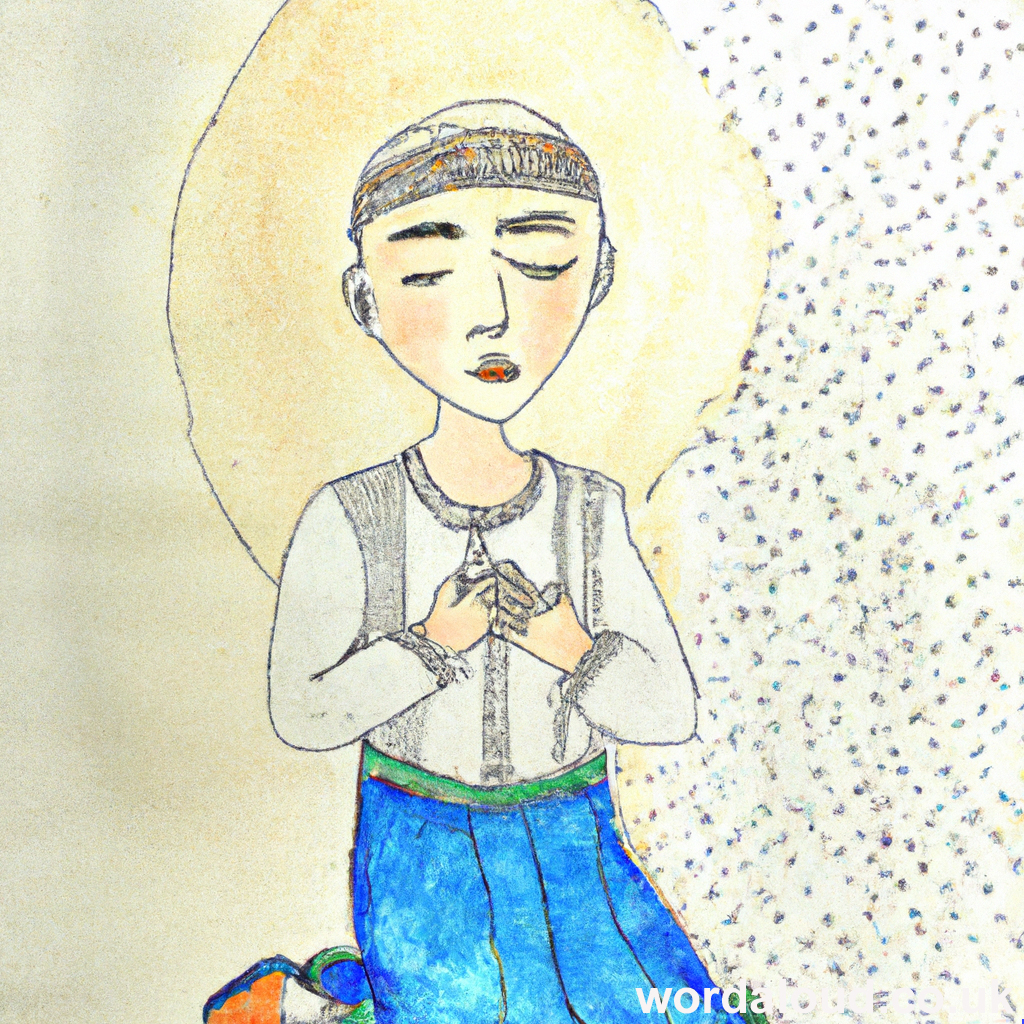Christian Art | The Resurrection
Mark 12: 18-27 – Week 9 Ordinary Time, Wednesday (Audio Bible KJV, Spoken Word)
18 ¶ Then come unto him the Sadducees, which say there is no resurrection; and they asked him, saying,
19 Master, Moses wrote unto us, If a man’s brother die, and leave his wife behind him, and leave no children, that his brother should take his wife, and raise up seed unto his brother.
20 Now there were seven brethren: and the first took a wife, and dying left no seed.
21 And the second took her, and died, neither left he any seed: and the third likewise.
22 And the seven had her, and left no seed: last of all the woman died also.
23 In the resurrection therefore, when they shall rise, whose wife shall she be of them? for the seven had her to wife.
24 And Jesus answering said unto them, Do ye not therefore err, because ye know not the scriptures, neither the power of God?
25 For when they shall rise from the dead, they neither marry, nor are given in marriage; but are as the angels which are in heaven.
26 And as touching the dead, that they rise: have ye not read in the book of Moses, how in the bush God spake unto him, saying, I am the God of Abraham, and the God of Isaac, and the God of Jacob?
27 He is not the God of the dead, but the God of the living: ye therefore do greatly err.
The Sadducees deny the resurrection, because they are rich and so proclaim the false belief that the Messianic Kingdom has already arrived, their riches being their reward for living according to the Law. In order to challenge Jesus, they present him with a fictional case of a widow passed from brother to brother, according to the Levirate Law, hoping to make the resurrection look ridiculous.
Jesus once more stands up to his attackers. Jesus’ example would have been of great comfort to those to whom Mark first addressed his Gospel, as they were forced to resist the authority of Rome and any compromises in their Christian faith.
Jesus cuts straight through the Sadducees’ attempts to confine God to this style of human reasoning. Christ presents them instead with revealed truth, which we may know through faith. The Sadducees have found what might have seemed a contradiction, and they have made themselves ridiculous by failing to grasp the truths of God which are beyond human reason.
Beyond this, Jesus highlights the failure of the Sadducees to understand the Scripture which has already been given to them, recalling the verses of Exodus in which Moses hears God in the burning bush. This resolves into an interpretation of what is written with which his accusers must agree, that God is not God of the dead but of the living.
‘But be ye doers of the word, and not hearers only, deceiving your own selves. For if any be a hearer of the word, and not a doer, he is like unto a man beholding his natural face in a glass: For he beholdeth himself, and goeth his way, and straightway forgetteth what manner of man he was. But whoso looketh into the perfect law of liberty, and continueth therein, he being not a forgetful hearer, but a doer of the work, this man shall be blessed in his deed. If any man among you seem to be religious, and bridleth not his tongue, but deceiveth his own heart, this man’s religion is vain. Pure religion and undefiled before God and the Father is this, To visit the fatherless and widows in their affliction, and to keep himself unspotted from the world.’ James 1: 22-27
Audio Bible KJV | Endnotes
I Look Forward To The Resurrection Of The Dead And The Life Of The World To Come
Jesus is challenged by the Sadducees, who do not believe in the resurrection of the dead. They ask Jesus a hypothetical question about a woman who has been married to seven brothers, all of whom have died. They ask: ‘In the resurrection therefore, when they shall rise, whose wife shall she be of them? For the seven had her to wife.’ (Mark 12:23)
Jesus responds by telling them that they are mistaken because they do not understand the power of God. Jesus says: ‘Do ye not therefore err, because ye know not the scriptures, neither the power of God?’ (Mark 12:24) Jesus then goes on to explain that in the resurrection, people will not be married or given in marriage, but will be like the angels in heaven. Jesus concludes by saying: ‘God is not the God of the dead, but the God of the living: ye therefore do greatly err.’ (Mark 12:27)
The belief in the resurrection of the dead and the life of the world to come is expressed in the Nicene Creed, one of the most important statements of Christian belief. The Nicene Creed, which was developed and adopted by the early church in the 4th century, declares: ‘We look for the resurrection of the dead, and the life of the world to come.’
This belief is rooted in the teachings of Jesus. In the Gospel of John, Jesus declares himself to be the resurrection and the life (John 11:25), and he raises Lazarus from the dead, demonstrating his power over death. Jesus was in glorified body resurrected from the dead!
The nature of the resurrected body is a topic of speculation. In 1 Corinthians 15, Saint Paul writes about the nature of the resurrected body, comparing it to a seed that is planted and then grows into something new. Saint Paul writes: ‘It is sown a natural body; it is raised a spiritual body. There is a natural body, and there is a spiritual body.’ (1 Corinthians 15:44) This passage suggests that the resurrected body will be different from the natural body, and will be a spiritual body that is suited for the life of the world to come.
Saint Thomas Aquinas, in his Summa Theologica, discusses the nature of the resurrected body. Saint Aquinas argues that it will be a glorified body, free from the limitations of our current earthly bodies. Saint Aquinas writes: ‘The body will be spiritual, not in substance but in condition; that is, it will be free from all corruption and defect.’ (Summa Theologica, III, q. 54, art. 1)








